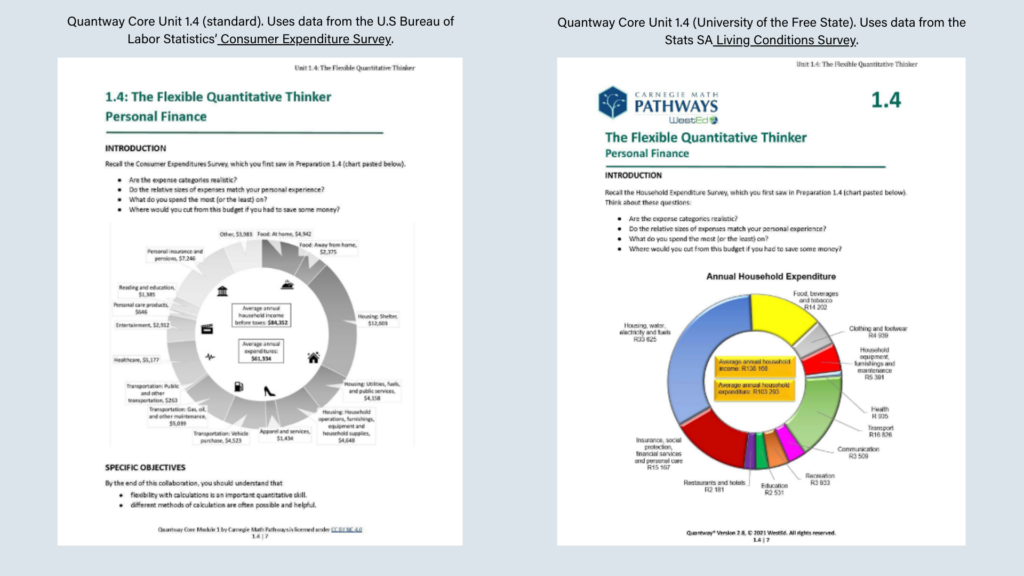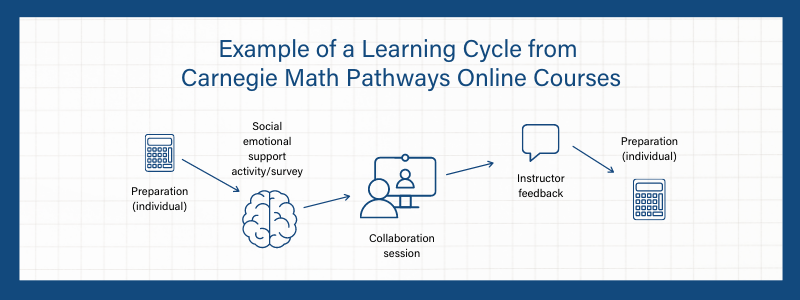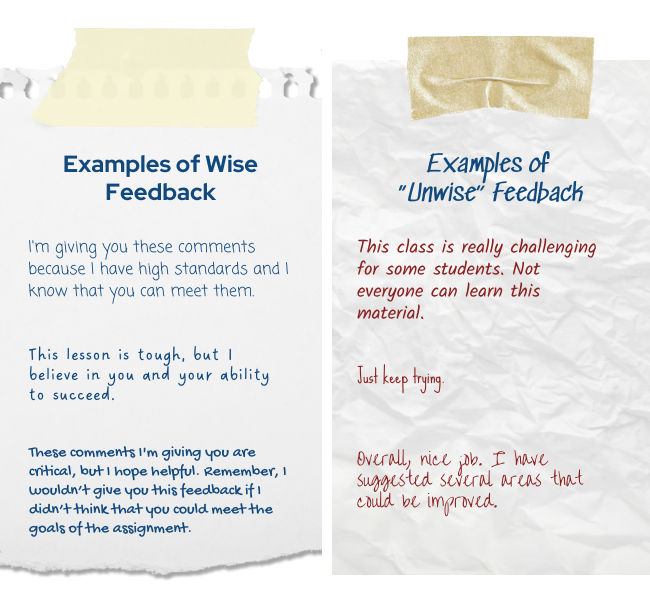In his article “Routines to Scaffold Mathematics Discourse,” published in The Math Practitioner newsletter of the Adult Numeracy Network, Brent E. Jackson, PhD (WestEd), shares how three simple discussion routines can help both teachers and students engage more authentically with math. Integrated throughout the Adult Numeracy in the Digital Era (ANDE) curriculum, which is part of a course model designed to improve mathematics teaching and learning in adult basic education, these routines make math discourse—talking about reasoning, questions, and strategies—both approachable and effective for adult learners and instructors.
Why Math Talk Matters
For many adult students, math class has meant memorizing formulas and working quietly toward the “right” answer. But as Jackson explains, true learning happens when students can discuss ideas, justify their reasoning, and listen to different perspectives.
At first, both teachers and students were initially hesitant about this shift. That’s why the ANDE team built in signature routines—structured warm-ups, crafted with adult learners and instructors in mind, that give everyone a safe, low-stakes way to practice math talk. Over time, these routines helped instructors feel more confident leading discussions and learners feel more comfortable contributing their voices.
Three Signature Routines
According to Jackson, the team focused on three main strategies for classroom discussions:
- Inviting student participation – helping start conversations, bring out different viewpoints, and encourage students to listen to one another.
- Orienting to each other’s reasoning – empowering students to consider different ways of thinking, build on their classmates’ ideas, and engage in active listening.
- Asking students to “revoice” – encouraging students to restate what another student said to show understanding, listen carefully, and take a more active role in the discussion.
These engagement strategies are woven into the routines, providing an encouraging environment for teachers to practice new ways of engaging in discussions. Below are example signature routines that focus on three types of discourse moves, or an action taken by an instructor to guide the classroom conversations and discussions. Each routine highlights the discourse moves of inviting, orienting, or asking.
Signature Routine 1: Which One Doesn’t Belong?
In this routine example, students are “invited” to examine four numbers, shapes, or fractions and decide which doesn’t fit—and why. Each student “orients” themselves by discussing what they discover and engaging in active listening amongst themselves. With no single right answer, the instructor asks students to share their opinions and to “revoice” others, with the goal being to justify thinking and explore multiple perspectives.
Signature Routine 2: What Do You Notice? What Do You Wonder?
For this sample routine, students are “invited” to view a graph, table, or diagram and “orient” themselves by sharing observations and questions. This routine provides the space for students to “ask” the questions that sparks curiosity, makes room for all learners, and gives teachers insight into student understanding.
Signature Routine 3: Comparing Solved Problems
In this last example, students are “invited” to look at two solutions to the same problem—one correct, one incorrect—and “orient” their discussions on the similarities and differences. This routine not only “asks” students to rethink mistakes but also normalizes mistakes as part of learning and strengthens conceptual understanding.
“Math isn’t just about answers—it’s about ideas, community, and confidence.”
The Impact
These routines are small but powerful. They:
- encourage participation from every student,
- give teachers structured practice with leading discourse, and
- move learners away from memorization and toward collaboration and sense-making.
By embedding these routines into lessons, instructors can create a culture where learners see themselves as capable mathematicians and where classroom dialogue naturally extends beyond the warm-ups.
Looking Ahead
Jackson’s article in The Math Practitioner is the first of a three-part series for the Adult Numeracy Network that looks at lessons from ANDE on improving math discussions in adult education. The next articles, which will be published in winter and spring of 2026, will offer more strategies and tools for teachers who want to encourage conversation and collaboration in their math classes.
The ANDE project is funded by the Institute of Education Sciences in the U.S. Department of Education (Award #R305N210029).
To learn more about ANDE and other research work that Carnegie Math Pathways at WestEd is engaged in, sign up for our In Sum newsletter.
 Carnegie Math Pathways’ move to OER helps enhance the accessibility and affordability of Statway and Quantway for students while empowering instructors to modify the curricula to best suit students’ needs and contexts.
Carnegie Math Pathways’ move to OER helps enhance the accessibility and affordability of Statway and Quantway for students while empowering instructors to modify the curricula to best suit students’ needs and contexts.
